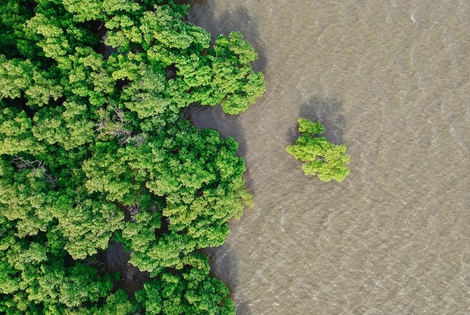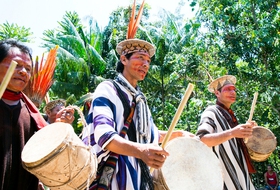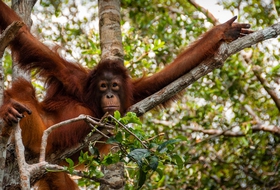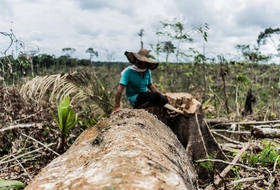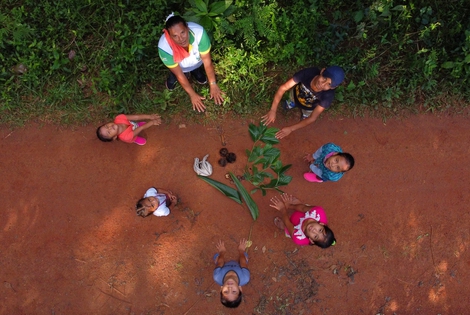
The Amazon became an alternative classroom during the pandemic. Now, the educational forest in Batraja, Bolivia, lives on to teach children and adults the value of nature.
European Union regulation to make food labels more transparent has come into effect, to the benefit of consumers and the environment.
The production of palm oil is one of the principal causes of deforestation in Southeast Asia, in particular in Malaysia and Indonesia. Virgin forests have been decimated to make space for palm oil plantations, and since the beginning of 2000 Indonesia has lost over six million hectares of forest, to the detriment of local communities and its richness in biodiversity.
The animal symbol of this tragedy is the orangutan (Pongo abelii), a magnificent and peaceful primate coated in auburn-coloured fur, risking extinction because of deforestation, which deprives it of food and the shelter offered by trees. This type of vegetable oil can also be dangerous to humans, as it is thought that under the form of hydrogenated fat it is replete with health risks.
Palm oil has a variety of uses (cosmetics production, biofuel, electricity), but is used especially in the confectionery industry. Products containing palm oil are very common because consumers often ignore the horrors they contain.
But from now on, something will change. The European Union has adopted new regulation to make information regarding food more transparent. The new law, which came into effect the 13th of December and is compulsory in all member states, imposes more specific indications with regards to the presence of palm oil and prohibits the term “vegetable oils”, so that consumers can be better informed as to what they purchase.
Not only palm oil, the new labelling system regulates other important aspects: for the first time, the minimum size of label’s text is defined, allergens have to be indicated more clearly, the date of the product’s freezing is to be included, as well as the physical state of the ingredients (for example, the term “milk” can’t be used for powdered milk), the expiration date has to be printed on every single package not only the external one, the presence of caffeine is to be clearly specified and the producer’s address is to be indicated, complete with street number.
Siamo anche su WhatsApp. Segui il canale ufficiale LifeGate per restare aggiornata, aggiornato sulle ultime notizie e sulle nostre attività.
![]()
Quest'opera è distribuita con Licenza Creative Commons Attribuzione - Non commerciale - Non opere derivate 4.0 Internazionale.
The Amazon became an alternative classroom during the pandemic. Now, the educational forest in Batraja, Bolivia, lives on to teach children and adults the value of nature.
Our species took its first steps in a world covered in trees. Today, forests offer us sustenance, shelter, and clean the air that we breathe.
Bangladesh suffered widespread damage as a result of Cyclone Amphan. Yet the Sundarbans mangrove forest acted as a natural barrier protecting the country from further destruction, as it has done countless times before.
On top of a 2.4 million dollar compensation, the indigenous Ashaninka people will receive an official apology from the companies who deforested their lands in the 1980s.
The tapir was reintroduced into Brazil’s Atlantic Forest, the country’s most at-risk ecosystem. The species can play a key role in the forest’s recovery.
Forests are home to 80 per cent of the world’s terrestrial biodiversity. This year’s International Day of Forests highlights the urgent changes needed to save them.
After a legal battle that lasted two years, Indonesia’s Supreme Court has revoked the permit to mine for coal in the forests of South Kalimantan in Borneo.
The list of human and animal victims of the Australia wildfires keeps growing – one species might already have gone extinct – as the smoke even reaches South America.
Areas where the FARC guerrilla used to hold power in Colombia have faced record deforestation. Farmers cut down trees, burn land and plant grass for cows. Because, “what else can we do for a living here in the Colombian Amazon”? An intimate report from the heart of the felled forest in Caquetá.

